Rudolf Steiner, Life and Work – 1890–1900: Weimar and Berlin
“It seemed to me that the turn of the century had to bring a new spiritual light to humankind. It seemed that a climax had been reached in excluding spirit from human thought and activity. A complete change in human evolution seemed an absolute necessity.” — Rudolf Steiner
The first chapter of this volume looks at Rudolf Steiner’s years in Weimar, beginning with his work at the Goethe Archives editing Goethe’s scientific works. It was in this capacity that Steiner was able to comprehend the great spiritual depth of Goethe’s life and work, which became the foundation for his own lifework. This chapter also looks at his social circles and the writing and publication of his works Truth and Knowledge (CW 3) and The Philosophy of Freedom (CW 4). It also highlights his encounter with the work of Friedrich Nietzsche, his visits to the Nietzsche Archives in Naumburg, and the writing of his book Friedrich Nietzsche: Fighter for Freedom (CW 5). Rudolf Steiner’s time in Weimar closed with the creation of his second book on Goethe: Goethe’s World View (CW 6), a fruit of his work at the Archives.
The second chapter focuses on Rudolf Steiner’s time in Berlin, where he worked as editor of a cultural periodical, Magazin für Litteratur and accepted a position as lecturer at the Workers’ School. There he was able to grow into his capacity as a teacher and where, although he encountered many ideological challenges, his insight into historical development found wide appreciation among students.
The third chapter covers the turn of the century and Rudolf Steiner’s inner transition to speaking and writing more openly of his esoteric observations on the evolution of consciousness, the “I,” and the training of cognition. His decisive 1899 essay, “Individualism in Philosophy,” marked this impulse, followed by invitations to lecture freely before the Theosophical Society, where Rudolf Steiner presented the esoteric nature of Goethe’s fairytale and the content of what later became his own books Mystics after Modernism (CW 7) and Christianity as Mystical Fact and the Mysteries of Antiquity (CW 8).
“It makes no sense to stop where Goethe stood. Yet we cannot progress unless we absorb Goethe deeply and allow ourselves to be wholly inspired by the impulses he brought into the world. This cannot be achieved as quickly as people today would like this to happen. There is nothing for it: anybody who was careless enough to live at the end of the nineteenth century must bear it.” — Rudolf Steiner (July 18, 1891)
C O N T E N T S:
4. In Weimar (1890–1897)
5. Berlin and the Workers’ School
6. The Turn of the Century
Notes
About the Author
Peter Selg was born in 1963 in Stuttgart and studied medicine in Witten-Herdecke, Zurich, and Berlin. Until 2000, he worked as the head physician of the juvenile psychiatry department of Herdecke hospital in Germany. Dr. Selg is now director of the Ita Wegman Institute for Basic Research into Anthroposophy (Arlesheim, Switzerland) and professor of medicine at the Alanus University of Arts and Social Sciences (Germany). He lectures extensively and is the author of numerous books, many of which have been published in English.
Margot M. Saar studied at the Universität des Saarlandes, at Open University, UK, and at Institut für Waldorfpädagogik Witten Annen, Germany. She is an experienced translator and interpreter in specialty fields (education, medicine, philosophy, anthroposophy, homeopathy, anthroposophic medicine, general science). She has been a foreign language teacher at Michael House School Derbyshire, UK, a teacher of foreign languages and philosophy, exam officer, and upper school mentor at Michael Hall School, East Sussex, and translator of technical manuals and legal contracts, international correspondence, office management at Hüls Troisdorf AG Witten Germany. Margot has translated numerous books for SteinerBooks, including Peter Selg’s 7-volume biography of Rudolf Steiner.
Rudolf Steiner, Life and Work, Seven Volumes

Vol. 1. (1861–1890): Childhood, Youth, and Study Years
Vol. 2. (1890–1900): Weimar and Berlin
Vol. 3. (1900–1914): Spiritual Science and Spiritual Community
Vol. 4. (1914–1918): The Years of World War I
Vol. 5. (1919–1922): Social Threefolding and the Waldorf School
Vol. 6. (1923): The Burning of the Goetheanum
Vol. 7. (1924–1925): The Anthroposophical Society and the School for Spiritual Science


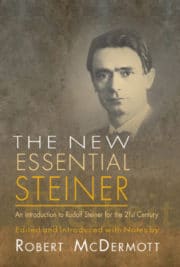
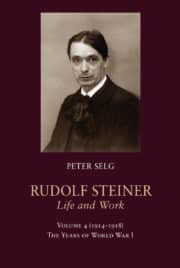







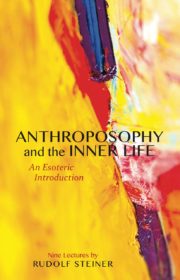
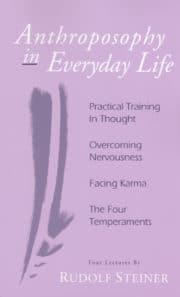
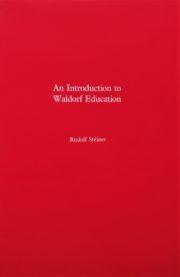

Reviews
There are no reviews yet